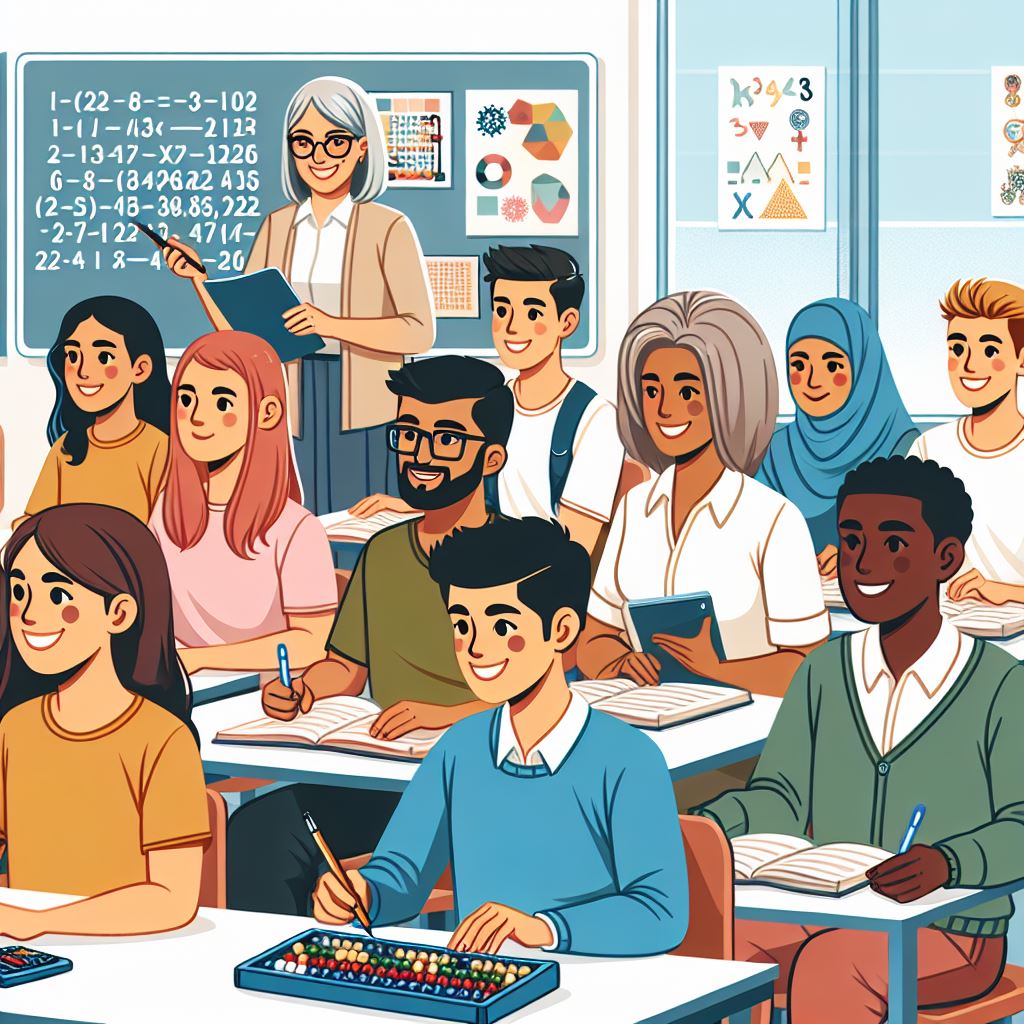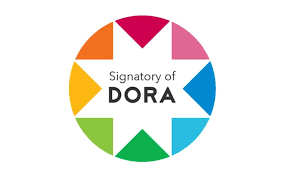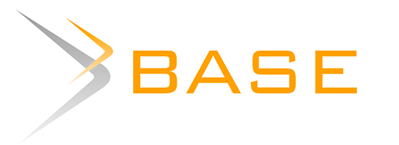Estrategias psicoeducativas para motivar a los estudiantes por el aprendizaje de las Matemáticas
DOI:
https://doi.org/10.56124/sapientiae.v8i16.011Palabras clave:
aprendizaje; estrategias psicoeducativas; gamificación; motivación.Resumen
El presente artículo tiene como objetivo analizar la importancia de las estrategias psicoeducativas para motivar el aprendizaje de las Matemáticas en los estudiantes de décimo año de educación general básica de la Unidad Educativa Fiscal Uruguay, Portoviejo, Manabí. Mediante una metodología de enfoque mixto, que emplea los métodos analítico e inductivo, como técnicas a la entrevista y la encuesta, a docentes del área de Matemáticas y estudiantes del nivel objeto de estudio mediante muestreo probabilístico. Los resultados indican que existe insatisfacción entre los estudiantes con respecto a los materiales de enseñanza, el diseño de juegos y actividades, el uso de elementos de juego, técnicas de enseñanza interactiva y el uso de recursos tecnológicos en la clase de Matemáticas. Además, se observa una percepción negativa sobre el rol del docente, así como una falta de motivación y entusiasmo por parte de los estudiantes. Se concluye con el diseño de la estrategia "Matemáticas en Acción" basada en la gamificación que se introduce para el aprendizaje de las Matemáticas. Mediante la incorporación de elementos lúdicos y competitivos, los estudiantes se ven inmersos en una experiencia de aprendizaje interactiva y divertida, lo que aumenta su participación, motivación y comprensión por las Matemáticas. Además, fomenta el trabajo en equipo, la colaboración y el pensamiento crítico, habilidades fundamentales para el desarrollo académico y personal de los estudiantes.
Descargas
Citas
Acevedo, F. (2020). Liderazgo pedagógico: pensar y construir una mejor educación. Revista Boletín Redipe, 9(11), 26-46. https://revista.redipe.org/index.php/1/article/view/1105
Africano, A. (2021). Estudio de los factores que influyen en el desinterés y la apatía de los estudiantes de básica primaria hacia las Matemáticas [Tesis de Licenciatura en Matemáticas]. Universidad Nacional Abierta y a Distancia UNAD. https://repository.unad.edu.co/bitstream/handle/10596/40158/baafricanom.pdf?sequence=1&isAllowed=y
Aldas, F., & Pinos, J. (2021). Estudiantes de Educación Básica con Bajo Rendimiento en Matemática y su entorno familiar. Polo de Conocimiento, 6(6), 569-585. https://doi.org/10.23857/pc.v6i6.2770
Alvarado, A., coronel, J., Vásquez, A., & Ortiz, W. (2024). Guía didáctica para promover la motivación en el proceso de enseñanza-aprendizaje de Matemáticas en estudiantes de tercer grado. Sinergia Académica, 7(2), 262-285. https://doi.org/10.51736/sa.v7i2.247
Bernal, C. (2016). Metodología de la investigación administración, economía, humanidades y ciencias sociales. Pearson.
Delgado, J., Espinoza, M., Vivanco, C., & Medina, N. (2023). La gamificación como eje motivador para el aprendizaje de la matemática. LATAM Revista Latinoamericana De Ciencias Sociales Y Humanidades, 4(1), 3928–3949. https://doi.org/10.56712/latam.v4i1.538
Encalada, Á. (2021). Aprendizaje en las Matemáticas. La gamificación como nueva herramienta pedagógica. Horizontes Revista de Investigación en Ciencias de la Educación, 5(17), 311-326. https://doi.org/10.33996/revistahorizontes.v5i17.172
Fondo de las Naciones Unidas para la Infancia [Unicef]. (15 de octubrede 2020). La Ciencia y la Tecnología. https://www.unesco.org/new/es/natural-sciences/science-technology/basic-sciences/mathematics/
García, A., & Solano, A. (2020). Enseñanza de la Matemática mediada por la tecnología. EduSol, 20(70), 84-99. http://scielo.sld.cu/scielo.php?pid=S1729-80912020000100084&script=sci_arttext&tlng=en
Hernández, R., Fernández, C., & Baptista, P. (2014). Metodología de la investigación. Mc Graw Hill. https://doi.org/https://www.uca.ac.cr/wp-content/uploads/2017/10/Investigacion.pdf
Organización de las Naciones Unidas para la Educación, la Ciencia y la Cultura (Unesco). (2020). Medición de los objetivos mundiales de educación: La contribución de TIMSS. IEA. Timss Educación 2030. https://www.iea.nl/sites/default/files/2020-12/IEA%20UNESCO%20Joint-report_TIMSS%202019-spanish_0.pdf
Organización para la Cooperación y el Desarrollo Económicos (Ocde). (2022). Featured –Pisa 2022 Results. Ocde. https://www.oecd.org/pisa/publications/
Pionce, K., & Véliz, V. (2023). La ludificación en el fortalecimiento del proceso de enseñanza-aprendizaje del idioma inglés en el nivel de básica superior. Revista Innova Educación, 5(4), 1-10. https://doi.org/10.35622/j.rie.2023.05v.005
Quingalahua, M., Guanga, U., Villafuerte, K., Chafla, L., Huaraca, D., & Gallegos, Y. (2023). Beneficios del modelo educativo Flipped Classroom en el aprendizaje de los estudiantes. Ciencia Latina Revista Científica Multidisciplinar, 7(3), 9542-9558. https://doi.org/10.37811/cl_rcm.v7i3.6836
Salcedo, F., Delgado, B., & Villavicencio, L. (2023). La interculturalidad como eje transversal en el currículo transformador del Ecuador. Revista Cienciometría, 9(2), 366-378. https://doi.org/10.35381/cm.v9i2.1184
Sánchez, O. (2022). La gamificación una técnica para motivar y potencializar el aprendizaje. Formación Estratégica, 4(1), 125-140. https://www.formacionestrategica.com/index.php/foes/article/view/60
Solís, J., & Ramírez, A. (2024). La intervención docente en el aprendizaje de las Matemáticas en la zona norte de Colegio de Bachilleres del Estado de Sinaloa. Revista Iberoamericana para la Investigación y el Desarrollo Educativo, 14(28), 633. https://doi.org/10.23913/ride.v14i28.1839
Zambrano, M., & Cedeño, O. (2023). El dominó como estrategia didáctica para el desarrollo del pensamiento lógico-matemático. Revista Científica Arbitrada Multidisciplinaria PENTACIENCIAS, 5(7), 424–441. https://doi.org/10.59169/pentaciencias.v5i7.981

Publicado
Cómo citar
Número
Sección
Licencia
Derechos de autor 2024 Revista Científica Multidisciplinaria SAPIENTIAE. ISSN: 2600-6030

Esta obra está bajo una licencia internacional Creative Commons Atribución-NoComercial-CompartirIgual 4.0.

2.jpg)

















